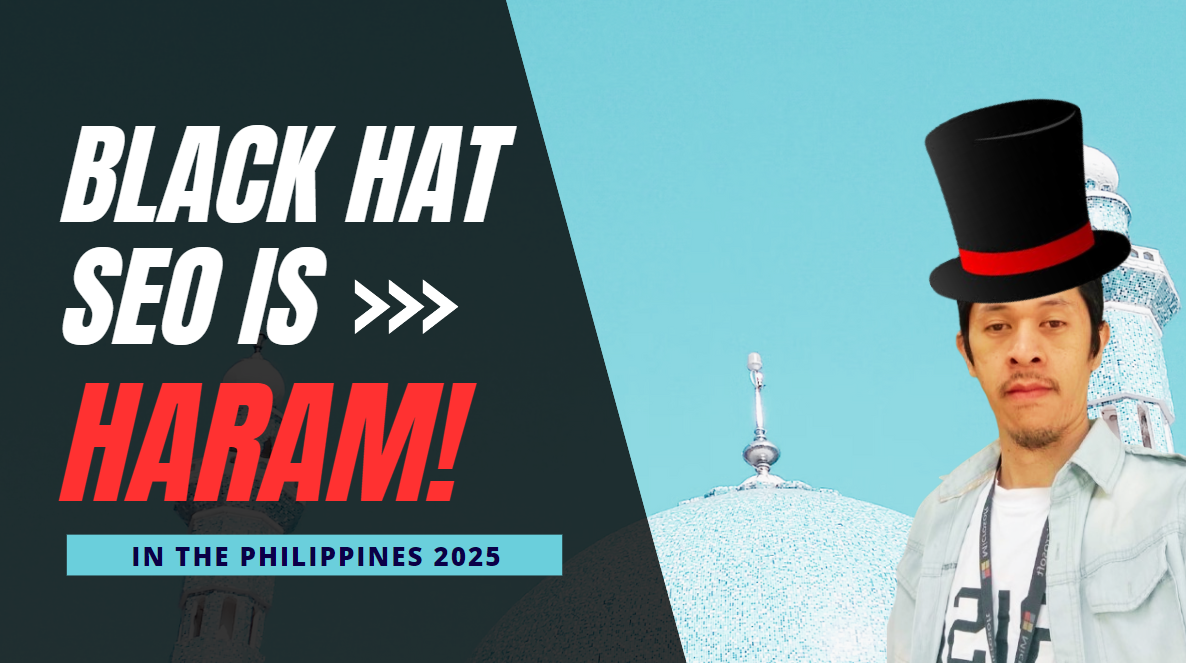In the digital industry, SEO (Search Engine Optimization) techniques improve business visibility including brand, product or services through websites on search engines. However, not all SEO best practices are ethical. Black Hat SEO, which involves deceptive tactics to manipulate search engine rankings, is considered Haram (forbidden) in Islam.
For those looking to delve deeper into effective SEO strategies tailored for Muslim audiences, we highly recommend the ‘Best Comprehensive Guide on How to Do SEO for Muslim Strategy for 2025.’ This guide offers a thorough exploration of the latest trends and best practices for achieving SEO success within the context of Muslim values and interests.
Must Read: The 3 Different Types of SEO Masters (Black Hat, White Hat, and Grey Hat)
This guide explains why Black Hat SEO is Haram, providing insights into its practices and their alignment with Islamic principles.
Why Black Hat SEO is Haram? An Authentic Informational Guide
1. Understanding Black Hat SEO
Definition: Black Hat SEO refers to unethical practices used to boost a website’s ranking in search engine results pages (SERPs). These methods violate search engine guidelines and are intended to deceive both the search engine algorithms and users.
Common Black Hat SEO Techniques:
- Keyword Stuffing: Excessive and unnatural use of keywords in content to manipulate rankings.
- Cloaking: Presenting different content to search engines and users.
- Hidden Text and Links: Using invisible text or hidden links to influence rankings.
- Link Farms: Creating a network of low-quality sites that link to each other to boost page authority.
2. Why Black Hat SEO is Haram
2.1 Deception and Dishonesty
Explanation: Islam places a high value on honesty and integrity. Black Hat SEO involves deception, both towards search engines and users. Using tactics like cloaking and hidden text to mislead search engines and manipulate rankings conflicts with Islamic principles of truthfulness and fairness.
Reference:
- Hadith: الحديث: قال النبي محمد (صلى الله عليه وسلم): “من غشنا فليس منا.”
Translation: The Prophet Muhammad (peace be upon him) said, “Whoever cheats us is not one of us.” (Sahih Muslim)
2.2 Harmful Impact on Users
Explanation: Black Hat SEO techniques can harm users by providing them with misleading information or poor-quality content. Islam emphasizes the importance of serving the community with respect and providing value. Misleading users through deceptive SEO practices contradicts this ethical obligation.
Reference:
- Quran: “And do not consume one another’s wealth unjustly or send it [in bribery] to the rulers in order that [they might aid] you [to] consume a portion of the wealth of the people in sin…” (Quran 2:188)
2.3 Violation of Trust
Explanation: SEO practices should aim to build trust between the website owner and the audience. Black Hat SEO undermines this trust by manipulating search results, leading to a false sense of credibility. Islam values trust and ethical conduct in all interactions.
Reference:
- Hadith: الحديث: قال النبي محمد (صلى الله عليه وسلم): “من حدث عنّا حديثاً ثم ذهب فقد أمانة.”
Translation: The Prophet Muhammad (peace be upon him) said, “When a man tells something and then goes away, it is a trust.” (Sunan Abu Dawood)
2.4 Short-Term Gains with Long-Term Risks
Explanation: Black Hat SEO may offer quick results, but it often leads to severe penalties from search engines, including being banned from search results. This pursuit of short-term gain at the expense of long-term consequences is against the Islamic principle of pursuing sustainable and honest outcomes.
Reference:
- Quran: “But those who believe are stronger in love for Allah.” (Quran 2:165)
3. Ethical Alternatives is White Hat SEO
Explanation: White Hat SEO aligns with Islamic principles as it involves ethical practices that respect search engine guidelines and user experience. White Hat techniques focus on providing valuable content, optimizing user experience, and building genuine authority.
Key White Hat SEO Practices:
- Creating High-Quality Content: Developing useful and relevant content for users.
- Ethical Link Building: Gaining links through honest outreach and valuable content.
- User Experience Optimization: Ensuring the website is user-friendly and accessible.
Conclusion
Black Hat SEO is considered Haram because it involves deception, harms users, violates trust, and seeks short-term gains at the expense of long-term consequences. Adhering to ethical SEO practices, such as White Hat SEO, aligns with Islamic values of honesty, integrity, and respect for others. By embracing ethical SEO, businesses and individuals can achieve sustainable success while adhering to their faith’s principles.
References:
- The Quran, Surah Al-Baqarah (2:188).
- Sahih Muslim.
- Sunan Abu Dawood.
- The Quran, Surah Al-Baqarah (2:165).


